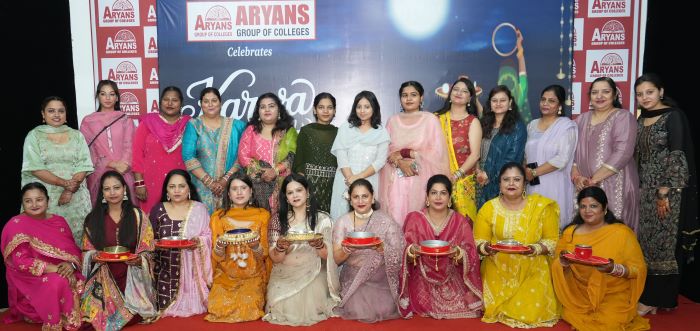
This isn’t a harmless question about tradition. It reflects how society views women, culture, and freedom.
In North India, the answer to whether a woman celebrates Karwa Chauth shapes how she’s seen—either as “good” for upholding tradition or “rebellious” for questioning it.
Say yes, and some accuse you of giving in to patriarchy. Say no, and others call you “anti-culture.”
But perhaps the wiser move is to stop answering and ask something better: What do women truly want?
That question drives journalist Ruhi Tiwari’s recent book, What Do Women Want?, which explores the identity of Indian female voters.
Yet, the question reaches far beyond elections—it cuts into daily life, power, and the right to choose.
From Karwa Chauth to Kabul: Two Realities, One Question
Across India’s northern border lies Afghanistan, where the Taliban have erased women from public life.
The contrast is sharp.
In India, women fasting on Karwa Chauth choose it as an act of love or faith.
In Afghanistan, women lose education, expression, and even visibility.
When Taliban Foreign Minister Amir Khan Muttaqi visited New Delhi, he barred Indian female journalists from his press event.
The press conference happened at the Afghan Embassy, yet the message was clear: even on democratic soil, the Taliban fear women’s presence.
The sight of confident Indian reporters may have threatened their belief that women must stay hidden to be respected.
The Question the Taliban Fear Most
If a woman journalist had entered that room, she might have asked:
“What do Afghan women want?”
For the Taliban, that question breaks the script.
But Afghan women answer it daily through courage and persistence.
At Kabul’s Indira Gandhi Children’s Hospital, women doctors still work without face coverings.
They save newborn lives, not for attention but from duty and compassion.
They reject regression through quiet strength.
Their skill and resilience prove that education and purpose can survive any regime.
Rituals, Choice, and Freedom in India
In India, Karwa Chauth remains a cultural flashpoint.
Critics call it outdated. Supporters call it sacred.
But the real question isn’t whether the ritual is feminist—it’s whether it’s chosen freely.
A woman who fasts out of love acts with as much agency as one who refuses a forced custom.
Feminism rests on freedom of choice, not uniformity.
Diplomacy and the Cost of Silence
India’s renewed engagement with the Taliban is often called smart diplomacy.
But diplomacy that ignores women’s suffering carries moral risk.
When no female journalist attends a press event in the world’s largest democracy, alarm bells should ring.
This moment isn’t only about the Taliban—it’s about what India is willing to tolerate.
For decades, India shared deep ties with Afghanistan—through culture, education, and humanitarian work.
In recent years, that moral influence has faded.
While China, Russia, and Pakistan expanded their reach, India followed others instead of leading with its values.
Reclaiming India’s Moral Voice
Officials claim India is “playing the long game.”
But ignoring women’s rights is never strategic—it’s shortsighted.
If India wants to lead South Asia, women must stand at the center of its diplomacy.
They are not cultural symbols; they are drivers of change.
The irony remains striking:
-
In Afghanistan, women can’t attend classes.
-
In India, women face judgment for how they practice love or faith.
In both nations, one truth endures: Freedom begins with choice.
Whether it’s studying medicine in Kabul or skipping Karwa Chauth in Kanpur, the right to choose defines empowerment.
The Question That Still Matters
So, when someone asks, “Do you celebrate Karwa Chauth?”—remember, it’s not about one night of fasting.
It’s about the freedom to choose—and the willingness to respect every woman’s answer.
Until that happens, we still haven’t answered the question:
What do women want?